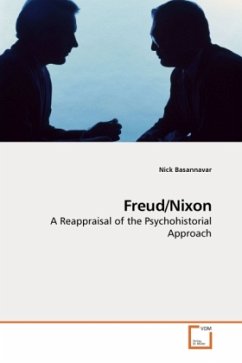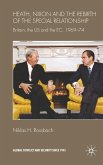Historians seemingly declared the end of psychohistory in the 1970s, but the time has come for a reappraisal. Once a notorious, far-reaching movement with origins rooted in Freudian psychoanalysis, psychohistory set out to understand motivation and explain action in historical subjects and events by utilising established psychological systems. When accusations of shoddy scholarship and reductionist technique were thrown at psychohistory's exponents, it seemed its time had passed. Here, Nick Basannavar explores the subgenre in depth before asking whether history turned its back too soon on the possible benefits of psychohistory. Taking a historiographical approach, he uses a case study of the psychohistorical literature on Richard Nixon to measure the successes, failures, and future potential of psychohistory.
Bitte wählen Sie Ihr Anliegen aus.
Rechnungen
Retourenschein anfordern
Bestellstatus
Storno








